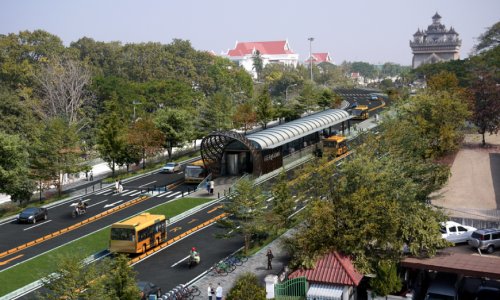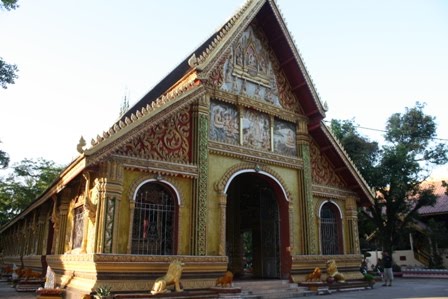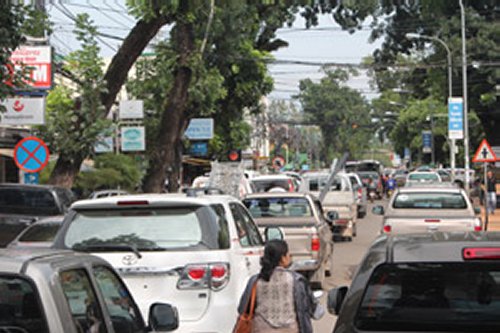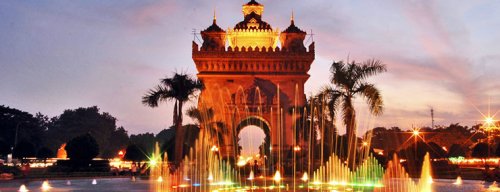Vientiane To Set Up Sustainable Transport System: ADB
The Asian Development Bank (ADB) has approved a $35 million loan to help finance a bus rapid transit system and other transport innovations to improve traffic flows in Vientiane, the fast growing capital of the Lao People’s Democratic Republic (Lao PDR).
“Vientiane is on an unsustainable transport development path and is starting to experience congestion,” said Jeffrey Miller, ADB principal transport specialist and project team leader. “The project will create a pedestrian-friendly urban transport system in a city where two-thirds of daily trips are taken on motorbikes and public transport accounts for less than 1% of daily trips.”
With an estimated population of 750,000 people, Vientiane has seen the number of registered private vehicles grow by more than 10% a year for the past decade and a half. This surge in traffic has resulted in an increasing number of accidents and worsening air quality.
The bus rapid transit system—which will have over 11 kilometers of dedicated bus corridor lanes, 24 enclosed stations, and over 90 new low-carbon emitting buses—draws on the design and lessons of other state-of-the-art sustainable urban transport systems supported by ADB, including one set up in Lanzhou, People’s Republic of China in 2014.
The project will also fund traffic management improvements in the heart of the city, including new signal lights at key intersections and a central control center. New electronic paid parking and national vehicle registration systems will be established, and pedestrian crossings and pavement upgrades carried out to improve the city’s walkability.
Another key feature will be the involvement of the private sector which will finance and operate the parking and vehicle registration systems. Bus operations, the control center, an electronic fare system and other functions will also be tendered out to private service providers. Currently there is no bus service linking points within the central area, traffic intersections operate inefficiently, and there is limited enforcement of parking regulations.
Along with developing public–private partnerships and reducing pollution, the project incorporates features to ensure the safety and security of women travelers, including priority seating and security cameras. A gender action plan will ensure that women make up 30% of the employees of the sustainable urban transport management agency, which will operate the public transport system.
The European Investment Bank, European Union’s Asian Investment Facility, Global Environment Facility (GEF), OPEC Fund for International Development (OFID), and the private sector will provide critical cofinancing support of about $50 million, subject to approval, with the government providing counterpart funds of $14.5 million. ADB will administer the OFID loan of $15 million and the GEF grant of nearly $2 million. The project will run for 5 years, with an estimated completion date of June 2020.
ADB, based in Manila, is dedicated to reducing poverty in Asia and the Pacific through inclusive economic growth, environmentally sustainable growth, and regional integration. Established in 1966, it is owned by 67 members – 48 from the region.
Source: ADB




